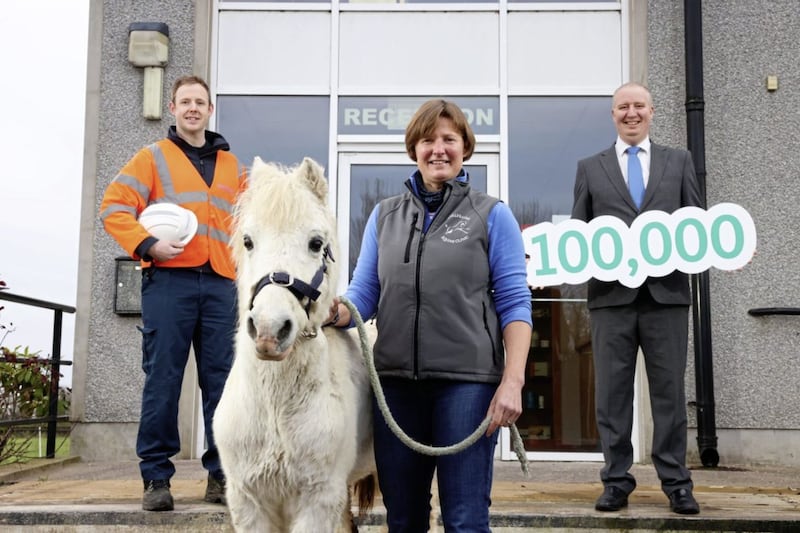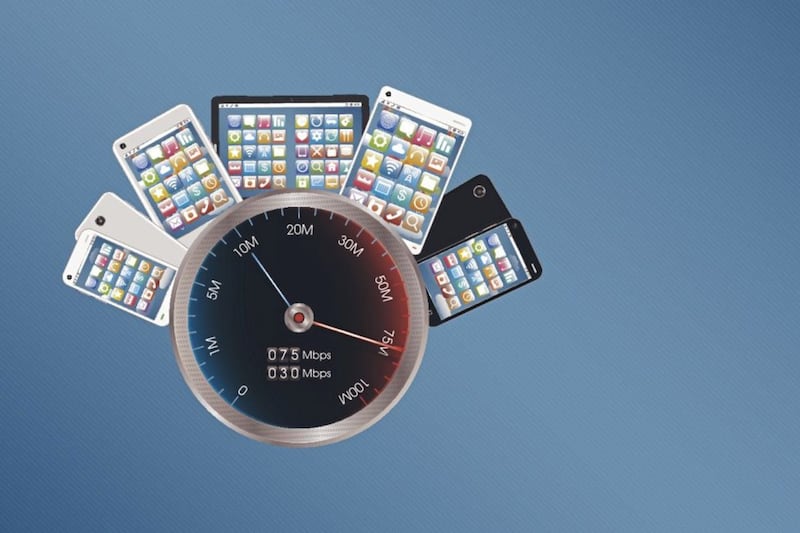IN his new role as director of Openreach NI, Garret Kavanagh is in charge of building the next generation of broadband across the region.
This involves replacing the copper network, which has served Northern Ireland’s telephone and internet needs for more than 140 years, with a fast and reliable gigabit-capable network that is already playing a key role in accelerating the region’s digital economy.
The ambitious roll out programme aims to bring full fibre broadband to 700,000 homes by March 2022, equating to over 75 per cent of properties across Northern Ireland.
This ultrafast full fibre technology will mean people can enjoy broadband that’s 10 times faster than the UK average – that’s the same as a car with a top speed of 120mph suddenly reaching speeds of 1200mph.
Garret, who joined the company as a graduate engineer in 2006, took up the job as director earlier this year, replacing Mairead Meyer who stepped down after five years in the role.
“The digital future of Northern Ireland is extremely positive,” Garret says.
“We’re already the most connected region in the UK and have recently announced 17 further towns and villages that we will be building ultrafast full fibre broadband to, as well as an additional £30 million investment in the overall infrastructure bringing the total investment to £130 million. It’s an incredible project to be a part of,” he says.
Reliance on broadband has expanded beyond normal expectations during the pandemic with the trend set to continue for years to come.
Garret adds: “What we are doing at Openreach has an important impact on the lives of everyone in Northern Ireland. Broadband is becoming much more of a core utility as time goes on. We have gone from the internet being a source of information to it being the primary conduit for communication, work and education.
“All our staff take great pride in being involved in building the network that keeps our communities connected today and into tomorrow.”
Openreach NI’s ambitious full fibre broadband programme is also central to Northern Ireland’s digital future and economic growth.
Garret says: “This full fibre technology will open up endless opportunities. It will allow for the set-up of new businesses, initiatives, products and services that we can’t even imagine yet and it will support economic and social regional rebalancing as people don’t have to live in the centre of cities to have the right level of connectivity.
“It will also support a sustainable future with more people able to work flexibly leading to less congestion and lessening the other associated impacts of mass commuting on our environment.”
Keen to live out sustainable values in its own business, Openreach has also pledged to convert all of its diesel fleet to electric by 2030. With these vans necessary for essential work every day, reducing their carbon footprint is a big focus.
“We understand the need to act on climate change and we are committed to reducing our operational impact. It’s important that we pay back to the communities we live in,” he says.
Along with its build programme, Openreach NI is continuing to recruit in all areas and add to its already 1,000-strong workforce across Northern Ireland.
“Working at Openreach is fantastic. I’ve been part of the team for 11 years now and it’s always so wonderful to welcome new members to our family. Recruiting apprentices has been a big focus and something we are extremely proud of.
“I’m delighted to say that recent recruitment initiatives have led to an increase in the volume of women applying for apprentice engineer roles and that’s something we want to continue,” Garret adds.
“It is clear that Openreach is determined and well on its way to building a better, faster and more connected future for everyone in Northern Ireland.”




